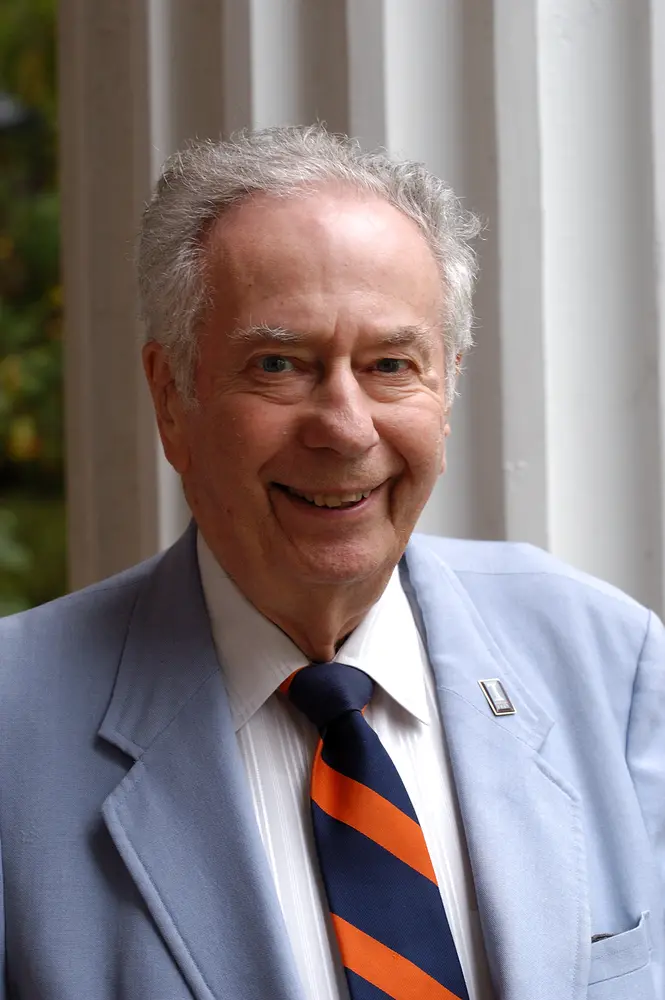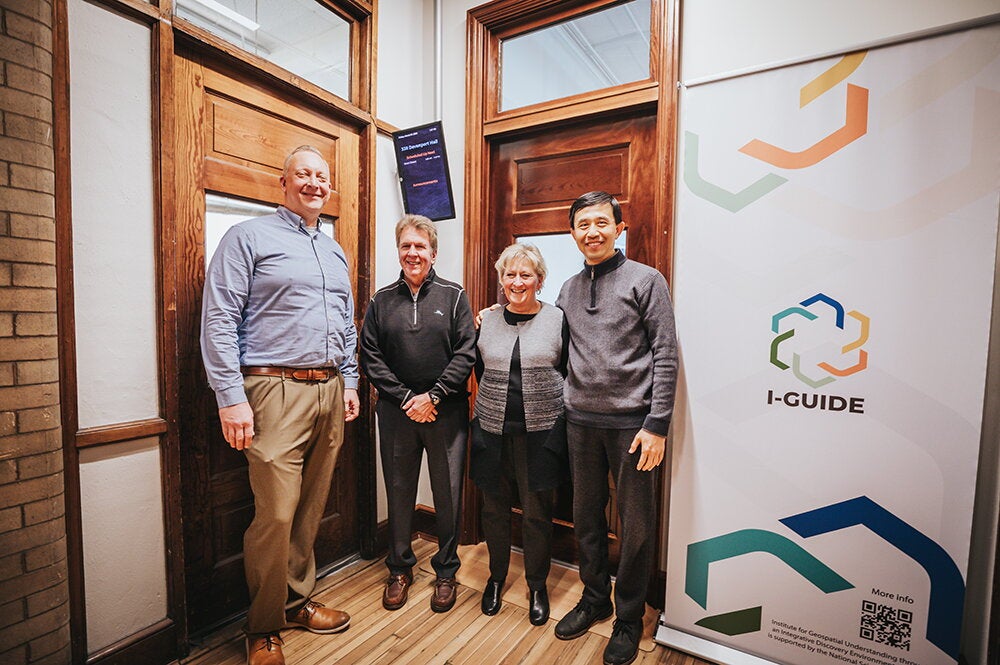
Robert Stuart (BS, '43, chemical engineering) heard the bombs coming. Instantly, he rolled out of his army bunk just seconds before an explosion ripped the roof off of his bamboo barracks.
Stuart vividly remembers this experience from his service time in the Philippines, where his company arrived shortly after General Douglas MacArthur. Stuart came out of the attack unscathed, but his wartime experiences inspired a deep commitment to international peace activities.
For example, Stuart served as director of the United Nations Association of Illinois and board chairman for both the World Federalist Association and the Association to Unite the Democracies. But his peace work is just one part of a life dedicated to a staggering list of service activities. Stuart has been involved in literally dozens of service organizations—all on top of being CEO and chairman of the National Can Corporation, a Fortune 500 corporation.
This lifetime of service and success has earned Stuart a 2005 Alumni Achievement Award from the College of Liberal Arts & Sciences.
Stuart received his bachelor's degree in chemical engineering from the University of Illinois in 1943, but he never wound up in that field. After World War II, he joined the family business—Cans Incorporated.
In 1951, Stuart's father sold his Chicago-based company to the National Can Corporation. And within 10 years, Stuart had worked himself up to president, and then chief executive. He expanded the National Can Corporation into an international company and with his leadership, the company achieved the highest earnings for an entire decade among all publicly owned companies, according to Forbes magazine.
Service and vision were keys to Stuart's management style. He understood the importance of serving your customers, suppliers and shareholders. "But most important," he says, "you have to please and engage your employees. The company is a team. You aren't going to do it alone."
Like any natural leader, Stuart had a knack for delegating and inspiring work, and for closely monitoring company progress. He transferred this management style to his service organizations, enabling him to juggle many at a time. He has worked with and often led groups in youth development, health care, crime prevention, church life, education and much more.
For example, Stuart was the founding chairman of the National Minority Supplier Development Council, which helps minority-owned businesses sell to large corporations competitively.
"We convinced corporations to arrange to buy a significant percentage from minority-owned businesses," Stuart says. "And it worked." In 2003, member companies delivered $80.2 billion worth of business to minority-owned companies.
As a leader in Rotary International, Stuart also recalls meeting Dr. Albert Sabin, discoverer of the oral polio vaccine, in 1995, on the night before Rotary declared its commitment to eliminating polio worldwide. Stuart helped to raise almost $2.5 million for Rotary's PolioPlus program, which has nearly eliminated polio from the planet.
After retirement in 1986, Stuart financed an increasing involvement with service organizations, working with as many as three dozen at a time. Today, he and his wife live in Cape Coral, Florida. At Christmastime, you may spot him standing outside a store ringing a bell for the Salvation Army.
As fellow U of I alumnus Kenneth Tabler put it, Stuart finds "great joy in casting a wide net in service to others."


